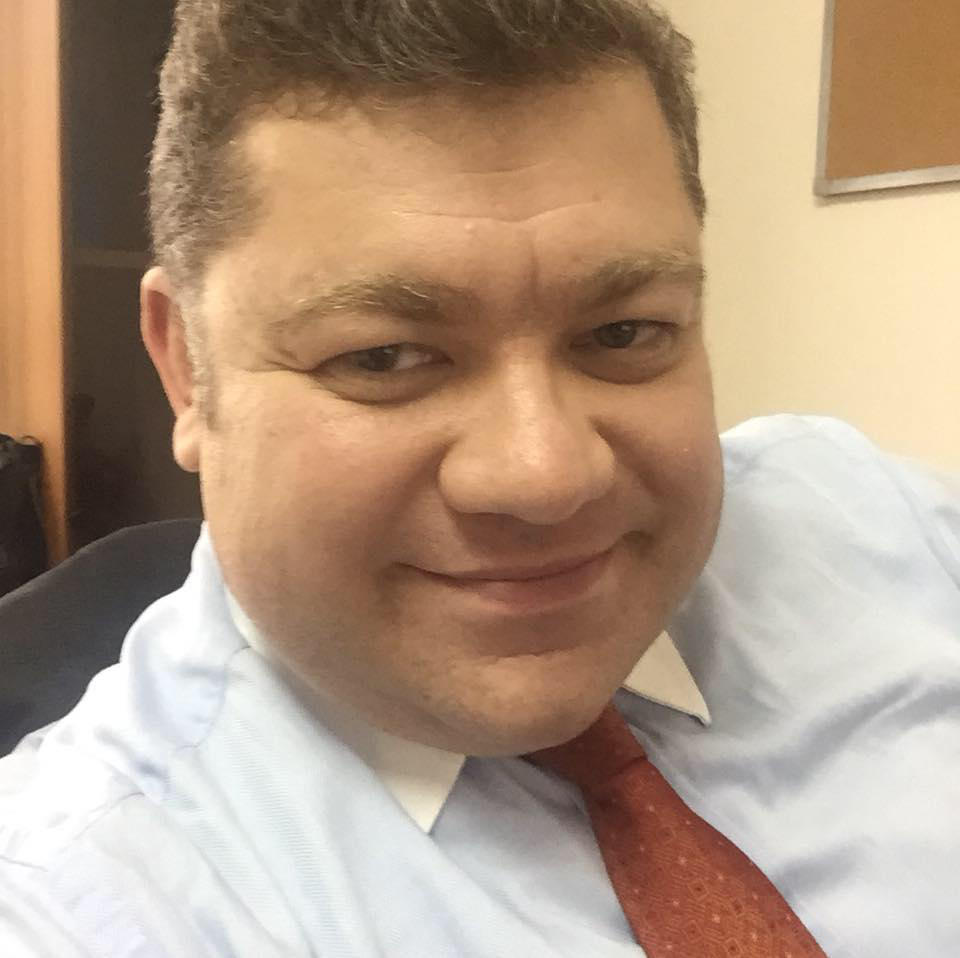Georgians ‘in Fashion’ in Ukrainian Reformist Government
Georgians always performed key roles in modern Ukrainian history. Infamous Ioseb “Stalin” Jugashvili aside, we could start with Giorgi Gongadze, a Georgian-born Ukrainian journalist who was kidnapped and murdered in 2000. Gongadze created the website pravda.com.ua (which remains influential to this day), which he used to criticize corrupt state officials. The circumstances of his death became a nation-wide scandal and a crux of protests against the government of then-President Leonid Kuchma. In fact, the murder of Gongadze ended up becoming a first step to the Orange Revolution in 2004. A monument to him was erected in Kyiv not far from city center.
The second Georgian in Ukrainian media is Sokhumi-born Zurab Alasania. In 2014 he became General Manager of Ukrainian Public Broadcasting. With his large Yamaha motorbike and an active Facebook profile, Alasania became an example of a modern manager who transformed the old Ukrainian state media into a real public broadcaster.
Mikheil Saakashvili, ex-President of Georgia, is probably the most famous Georgian in Ukraine. He was appointed head of International Council of Reforms by Petro Poroshenko. It is interesting that the newly appointed representative hasn’t received his residence permit so far. “I am not going to bribe anyone for it,” Saakashvili joked at “Shuster Live” TV show. “Our guys [Georgian volunteers] fight and die for Ukraine and they also have to wait months for their permits.”
Davit Sakvarelidze, Ukraine’s Vice Prosecutor General, held the same position in Georgia. Initially he applied for a post of a head of Anti-Corruption Bureau, but President Poroshenko granted him Ukrainian citizenship and appointed him to the Prosecutor’s Office instead. Now Davit is in charge of reforming the most outdated state institution that preserved all of the worst Soviet traditions. Some Ukrainian officials joke about looking into Sakvarelidze’s eyes and seeing only rows of gallows, meaning that he is ready to get rid of all the old corrupt state managers. “Long overdue!” writes Vitaly Sych, editor of Novoye Vremya magazine on his Facebook page. “Gallows are excellent tools in a fight against corrupt officials.” In his preface to the interview with the newly appointed Sakvarelidze, Andry Chernikov writes that “Georgians in general and Sakvarelidze in particular lack the bombast which is so typical for local “reformers”.
Ex-minister of Justice Zurab Adeishvili, who was declared wanted by Georgian police and even Interpol [which later called the search for him off], now serves the Ukrainian government as a consultant. There is no clear evidence of his activity, but it is said that Adeishvili works on anti-corruption bills.
Alexander Kvitashvili is Ukraine’s current Minister of Healthcare, which is the position he held under Saakashvili from 2008 to 2010. Kvitashvili started his career in Ukraine with a breakeven policy for state hospitals, suggesting that they should offer paid services to patients and reduce the Healthcare Ministry’s staff.
Semen Gluzman, president of Ukrainian Psychiatrist Association, said the following about him in an interview: “Kvitashvili is a freshman; he is not involved in Ukrainian corruption and not connected to the local pharmaceutical oligarchs. So when he came, I thought that salvation was finally coming”.
However Gluzman changed his mind after finding out that Kvitashvili was rather reclusive. “I failed to meet with him, despite my efforts,” Gluzman said. “He doesn’t explain what he wants, but he has plenty of ideas. And one of them really scares me - privatization. I know what will happen if he privatizes our healthcare system. It will be its end”.
Eka Zghuladze is currently serving as First Deputy Minister of Internal Affairs of Ukraine, a position she assumed on December 17 2014. At a briefing in the Ministry, she informed journalists that Ukrainian militia will be renamed “police.” Police patrol service will be completely overhauled and police schools will follow a new model. Kyiv-based journalist Anastasia Ringis jokingly called Zghuladze an official from a “baby-faced generation”, referring to her relatively young age, as she was only 26 years old at the moment of her appointment to the post in Georgia. This inconspicuous girl looks like a young graduate amongst her colleagues, but only until she starts sharing her professional experience. It is difficult to argue with her.
It is definitely fashionable to be Georgian in Ukraine at the moment. So if you are not afraid of war, assassinations and corruption, come on in!
Author: Oleg Shinkarenko
